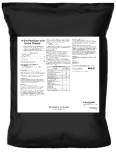Purina reduces fertilizer use as part of decarbonization effort

Nestlé Purina PetCare, known for household brands like Felix and Purina One, has embarked on a mission to decarbonize its supply chain by reducing fertilizer use and promoting regenerative agriculture practices. These moves, part of the company’s sustainability goals, are significant for the agricultural sector, particularly as Purina aims to cut its greenhouse gas emissions by 50% and adopt regenerative methods for 20% of its cereal and vegetable protein supply by 2025, with the aim of increasing that to 50% by 2030.
Fertilizer reduction is a key element of Purina’s approach. The overuse of synthetic fertilizers is a well-known challenge in agriculture, contributing to nutrient runoff that damages soil quality and contaminates water systems. By shifting toward regenerative farming, Purina is encouraging suppliers to adopt practices that improve soil health, increase biodiversity, and reduce the carbon footprint of food production. For farmers, this means incorporating methods like crop rotation, cover cropping, and organic fertilizer use—techniques that not only sequester carbon but also contribute to longer-term soil fertility and productivity.
Agribusinesses stand to benefit from this shift. As demand grows for sustainable food production, regenerative practices are increasingly seen as a way to future-proof agricultural operations. By reducing reliance on synthetic inputs and focusing on natural soil improvement, farmers can create more resilient agricultural systems, mitigating the impacts of climate change while maintaining crop yields.
Purina’s sustainability efforts also extend to marine ecosystem restoration. Though it may seem distant from agricultural concerns, the restoration of seagrass meadows and oyster reefs is connected to the health of our farmlands. Nutrient runoff from farms is a major cause of ocean pollution, leading to problems like algal blooms and the destruction of marine habitats. By improving land-based practices, such as reducing fertilizer use, farmers play a crucial role in preventing these issues and protecting marine biodiversity.
As Purina’s initiatives take shape, agribusinesses are likely to see more collaboration opportunities in sustainable farming. The company’s commitment to sharing knowledge and pooling resources with other private sector entities opens doors for farmers and agricultural suppliers to participate in shaping a more sustainable future for food production.
Enjoyed this story?
Every Monday, our subscribers get their hands on a digest of the most trending agriculture news. You can join them too!







Discussion0 comments